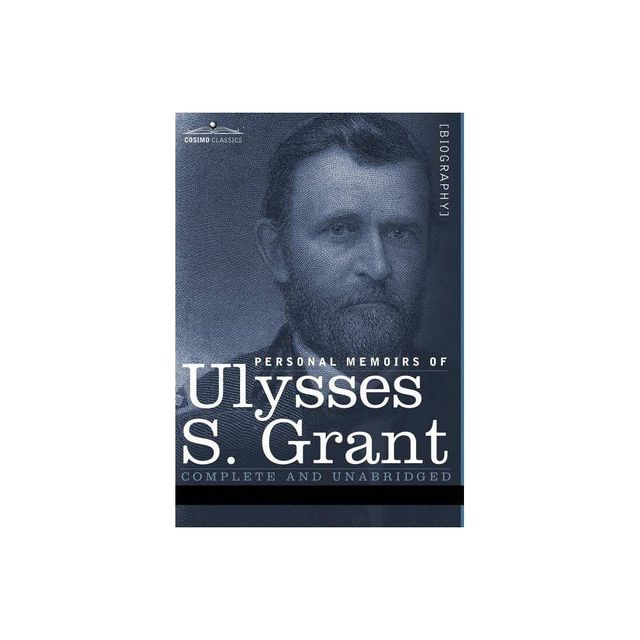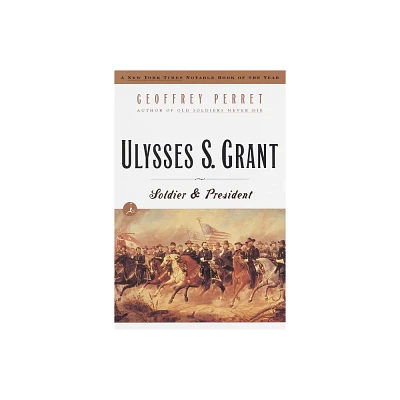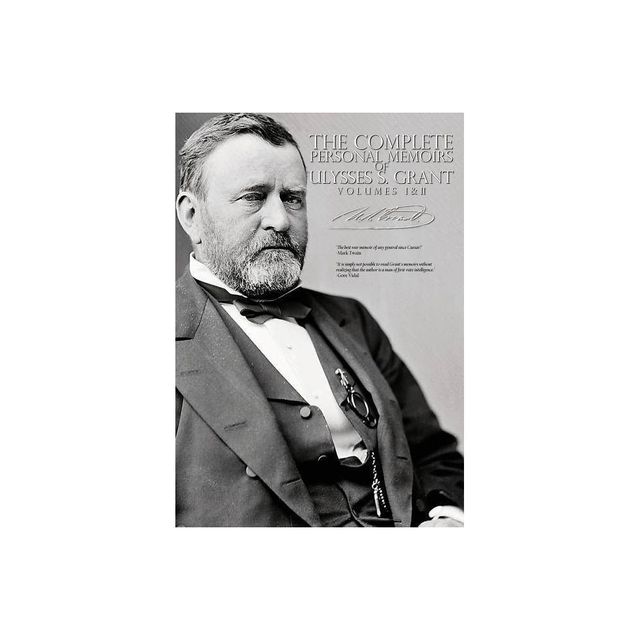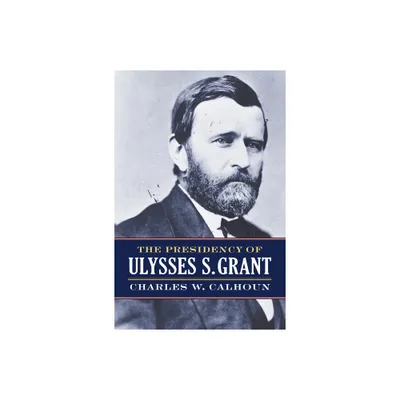Home
The life of General Ulysses S. Grant. Containing a brief but faithful narrative of those military and diplomatic achievements which have entitled him to the confidence and gratitude of his countrymen. By: John S. C. Abbott: Ulysses S. Grant, born Hiram Ul
Loading Inventory...
Barnes and Noble
The life of General Ulysses S. Grant. Containing a brief but faithful narrative of those military and diplomatic achievements which have entitled him to the confidence and gratitude of his countrymen. By: John S. C. Abbott: Ulysses S. Grant, born Hiram Ul
Current price: $10.54


Barnes and Noble
The life of General Ulysses S. Grant. Containing a brief but faithful narrative of those military and diplomatic achievements which have entitled him to the confidence and gratitude of his countrymen. By: John S. C. Abbott: Ulysses S. Grant, born Hiram Ul
Current price: $10.54
Loading Inventory...
Size: OS
*Product Information may vary - to confirm product availability, pricing, and additional information please contact Barnes and Noble
John Stevens Cabot Abbott (September 19, 1805 - June 17, 1877), an American historian, pastor, and pedagogical writer, was born in Brunswick, Maine to Jacob and Betsey Abbott. Early life: He was a brother of Jacob Abbott, and was associated with him in the management of Abbott's Institute, New York City, and in the preparation of his series of brief historical biographies. Dr. Abbott graduated at Bowdoin College in 1825, prepared for the ministry at Andover Theological Seminary, and between 1830 and 1844, when he retired from the ministry in the Congregational Church, preached successively at Worcester, Roxbury and Nantucket, all in Massachusetts. Literary career: Owing to the success of a little work, The Mother at Home, he devoted himself, from 1844 onwards, to literature. He was a voluminous writer of books on Christian ethics, and of popular histories, which were credited with cultivating a popular interest in history. He is best known as the author of the widely popular History of Napoleon Bonaparte (1855), in which the various elements and episodes in Napoleon's career are described. Abbott takes a very favourable view towards his subject throughout. Also among his principal works are: History of the Civil War in America (1863-1866), and The History of Frederick II, Called Frederick the Great (New York, 1871). He also did a forward to a book called Life of Boone by W.M. Bogart, about Daniel Boone in 1876. In general, except that he did not write juvenile fiction, his work in subject and style closely resembles that of his brother, Jacob Abbott... Ulysses S. Grant, born Hiram Ulysses Grant, (April 27, 1822 - July 23, 1885) was the Commanding General of the United States Army at the end of the American Civil War. He was elected as the 18th President of the United States in 1868, serving from 1869 to 1877. As Commanding General, Grant worked closely with President Abraham Lincoln to lead the Union Army to victory over the Confederacy in the Civil War. Supported by Congress, Grant began to implement Reconstruction, often at odds with President Andrew Johnson, who succeeded the assassinated Lincoln. Twice elected president, Grant led the Republicans in their effort to remove the vestiges of Confederate nationalism and slavery, protect African-American citizenship, and support economic prosperity. Although his presidency has often been criticized for its scandals and for his failure to alleviate the economic depression following the Panic of 1873, he is regarded as a President who performed relatively well in the context of his time, and took strong action on civil rights for African Americans. Grant graduated in 1843 from West Point and served in the Mexican-American War. After the war, he married Julia Boggs Dent in 1848, and together they had four children. Grant retired from the Army in 1854 and struggled financially in civilian life. When the Civil War began in 1861, he rejoined the U.S. Army and quickly rose through the ranks. In 1862, Grant took control of Kentucky and most of Tennessee, and led Union forces to victory in the Battle of Shiloh, earning a reputation as an aggressive commander. In July 1863, after a series of coordinated battles, Grant defeated Confederate armies and seized Vicksburg, taking Union control of the Mississippi River and dividing the Confederacy in two. After Grant's victories in the Chattanooga Campaign, Lincoln promoted the officer to lieutenant general and Commanding General of the Army in March 1864. Grant confronted Robert E. Lee in a series of bloody battles, trapping Lee's army in their defense of Richmond. Grant coordinated a series of devastating campaigns in other theaters, as well. In April 1865, Lee surrendered to Grant at Appomattox, effectively ending the war. Historians have hailed Grant's military genius, and his strategies are featured in military history textbooks, but a minority contend that he won by brute force rather than superior strategy...


















